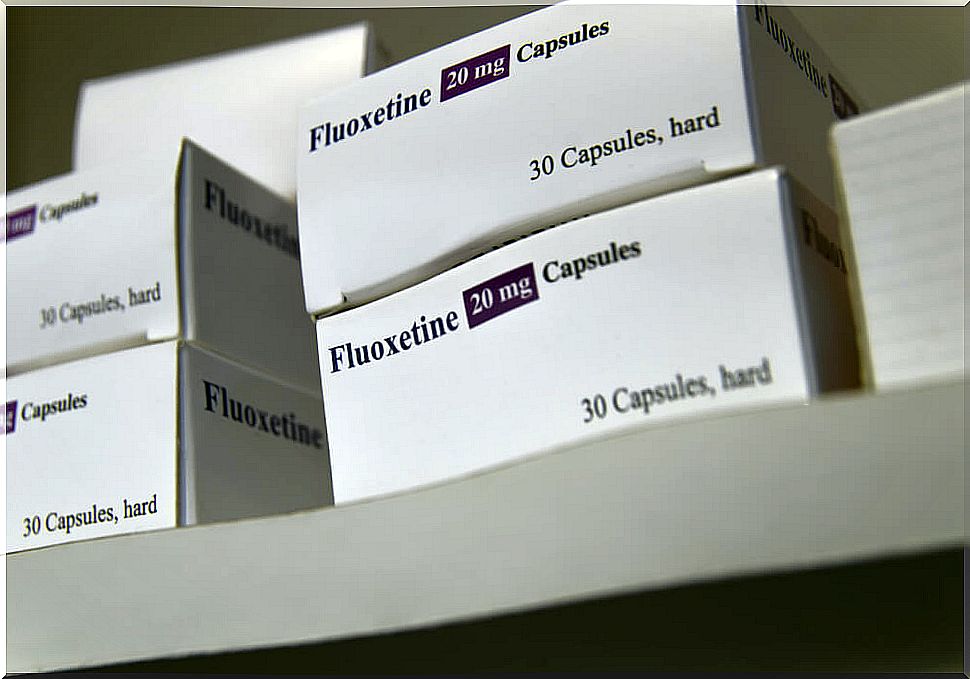Fluoxetine During Pregnancy
Fluoxetine is one of the best studied drugs during pregnancy. It is indicated in the treatment of depression and belongs to the group of serotonin reuptake inhibitors (SSRIs). This is because it has the ability to increase the levels of this neurotransmitter, which is key in maintaining the balance of our mood.
Under the brand name Prozac , fluoxetine was the first drug marketed in the United States, by the Eli Lilly company in 1988, for the treatment of major depression. It inspired a lot of confidence in the medical community, as it had the same efficacy as existing antidepressant drugs. In addition, it had fewer adverse effects.
To date, new molecules have been developed for the treatment of depressive disorders, although fluoxetine has been the most widely used worldwide. Next, we detail its use during the pregnancy period.
Depression in pregnancy or prenatal depression
Pregnancy is a stage that marks a woman’s life. The hormonal swing that takes place in the body can trigger various types of emotions and feelings, sometimes conflicting.
When the feeling of sadness persists over time, it may be the case that there is a picture of prenatal depression, a complex state to which we must pay special attention.

It is a difficult problem to detect, since normal signs of the pregnancy itself can be confused, such as fatigue, reluctance or difficulty falling asleep. If the following symptoms appear, we should seek professional help:
- Anxiety.
- Irritation and bad mood.
- Feeling of emptiness and guilt.
- Loss of social skills.
- Pessimistic thoughts for the future.
- Difficulty staying focused.
- Changes in eating, resting and hygiene habits.
- Sadness and bouts of disconsolate crying for no apparent reason.
- Inability to enjoy activities that you used to like.
- Also the future mother may show ambiguous feelings towards the baby and even rejection of the idea of having to cope with childbirth.
Untreated prenatal depression can have significant side effects for the mother and the baby, as well as an increased risk of miscarriage , premature delivery, low birth weight, or delayed growth of the baby .
In addition, having prenatal depression increases the chance of depression after delivery by 25%; however, the benefits and risks of taking antidepressants during pregnancy must be considered. Here we tell you what you should know.
Can I take fluoxetine during pregnancy?
Fluoxetine is the drug generally prescribed for the treatment of prenatal depression. And although the FDA classifies it as category C, it has been considered a safe therapy for pregnant women suffering from depression, always evaluating the risk / benefit of treatment.
However, according to scientific literature, treatment with fluoxetine during the first trimester of pregnancy may be associated with an increased risk of cardiovascular malformations in the baby.
The data suggest that the risk of the neonate developing a cardiovascular defect after maternal exposure to fluoxetine is of the order of 2/100 compared with an expected rate for these defects in the general population of approximately 1/100.
Other epidemiological studies suggest that the use of SSRIs in late pregnancy may increase the risk of persistent pulmonary hypertension in the newborn (PNH).
The observed risk was approximately 5 cases per 1000 pregnancies. In the general population, 1 or 2 cases of PNH occur per 1000 births.

According to the AEMPS, fluoxetine should not be used during pregnancy unless the clinical situation of the woman requires this treatment and the potential risk to the fetus is justified.
It is especially important that the discontinuation of fluoxetine treatment is not abrupt , but by proceeding with a gradual reduction of the dose over a period of one to two weeks, to avoid the appearance of withdrawal symptoms.
Also, if fluoxetine is used during pregnancy, caution should be exercised in the late stage or just before delivery. This is because some effects have been reported in neonates, such as:
- Shaking.
- Hypotonia
- Irritability.
- Persistent crying
- Difficulty sucking or sleeping.
Only a psychiatrist can prescribe it
Treatment with fluoxetine during pregnancy, both in the first and last stages, should be discussed with the psychiatrist. The professional should evaluate the risk / benefit for both the future mother and the baby.
Therefore, if we are facing a significant depression, we can consider continuing the treatment. However, if it is a well-controlled depression, the ideal is to dispense with fluoxetine treatment and have psychological support.








